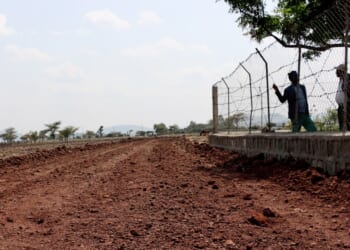Iran’s Ministry of Intelligence recently arrested some 53 Christians over what they called espionage charges.
An Aug. 19 report from Article18, a religious liberty watchdog group based in London, said that a video report released by Iranian state media showed the believers’ confiscated Bibles and other Christian literature.
The report also showed apparent surveillance of Christians smuggling Bibles into the overwhelmingly Islamic nation.
Some of the Christians’ forced confessions were included in the report, Article18 said.
Mansour Borji, the director of Article18, said that the state media video report was “a very clear example of hate speech.”
That is true, he said, “not just against the 50-plus Christians who have been arrested, but against the entire evangelical Christian community, which accounts for the majority of Christians in the country.”
The report implied that Christians are working with Mossad, the Israeli intelligence agency, Borji noted.
“The clear suggestion being made here is that all evangelical Christians are associates of Mossad,” Borji said. “The notorious ‘interrogator journalist’ levels all kinds of accusations against these Christians, which have not been proven in any court of law.”
Borji said that the goal of the propaganda is to “tarnish the face of Christians and Christian activities.”
Many Christians rely on online resources and attend gatherings in other countries, according the Christian Post.
Some of the believers detained by Iran were coming back from a Christian event in a nearby nation, according to Borji.
The Iranian government distinguishes between evangelical Christians, who are often converts from Islam, and the historic Armenian and Assyrian Christians who live in the country.
The latter group is allowed to operate with some restrictions. However, converted Christians are not recognized by the Iranian government and cannot worship legally in the country.
Perhaps most importantly, Christians are not allowed to evangelize to Persians.
Open Doors puts the current population of Christians in Iran at 800,000.
Many do not have a church to attend, and some meet in underground house churches.
“Christians who followed Jesus out of Islam are most vulnerable to persecution and discrimination. Government control is highest in urban areas, while rural areas are less monitored,” the group said.
“However, the anonymity of urban areas gives Christians more freedom to organize meetings and activities than in rural areas, where social control is higher.”
Advertise with The Western Journal and reach millions of highly engaged readers, while supporting our work. Advertise Today.














